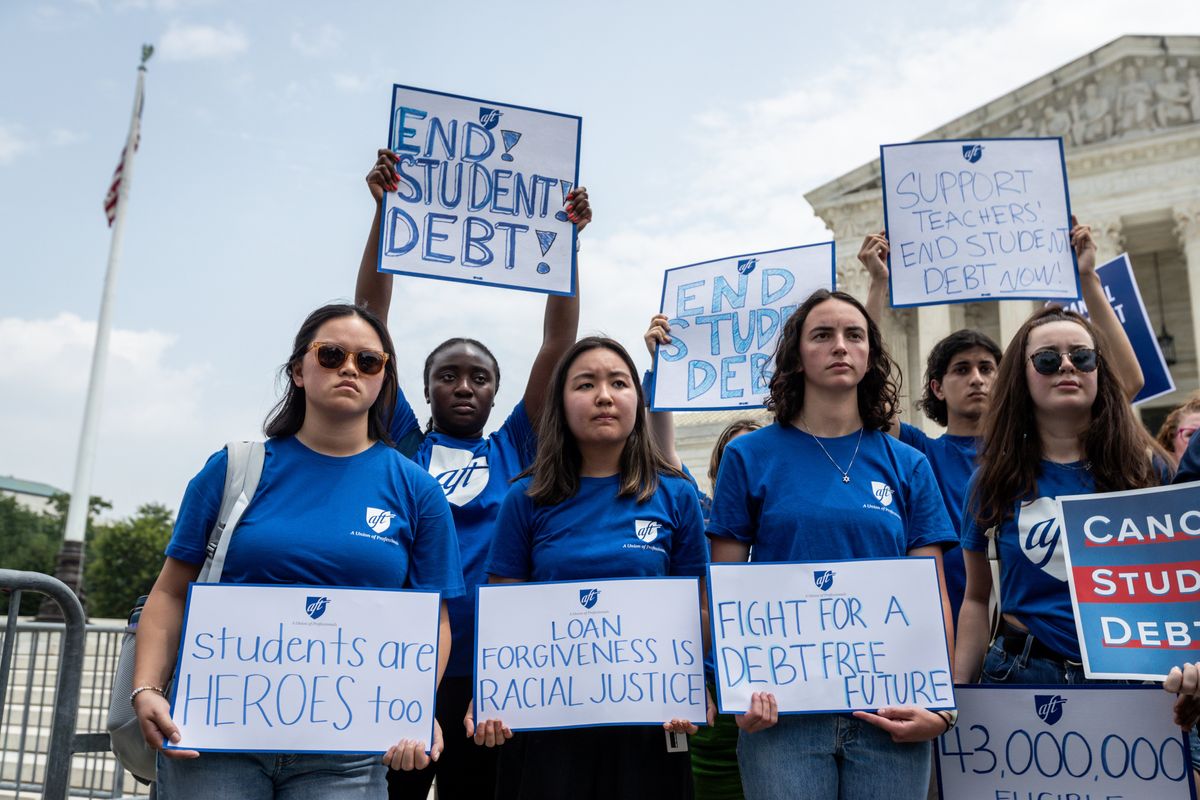Fresh out of Barnard College with a degree in political science, Riley is a writer and reporter for GZERO. When she isn’t writing about global politics, you can find her making GZERO’s crossword puzzles, conducting research on American politics, or persisting in her lifelong quest to learn French. Riley spends her time outside of work grilling, dancing, and wearing many hats (both literally and figuratively).
Today, on the final day of its session, the US Supreme Court announced its decision to block President Joe Biden’s student loan forgiveness proposal, which would have canceled more than $400 billion in student loan debt for millions of borrowers.
While disappointing to the 40 million student loan borrowers who would have benefitted from the program, the odds of the conservative majority court ruling in favor of Biden’s proposal were slim. The 6-3 vote was split down ideological lines, with the court’s conservative justices arguing that the law does not authorize the Department of Education to cancel student loan debt.
Biden had justified his plan by using the HEROES Act, which allows the Secretary of Education to alleviate the hardship of student loan debt during times of national emergencies. But six states filed lawsuits accusing Biden of overstepping his authority.
Student loan forgiveness was one of Biden’s campaign promises in 2020. While those who supported it will likely blame the court, Friday’s ruling is a setback for the president as he looks ahead to his 2024 run for the White House. His popularity with millennials and Gen Z was already falling – it dropped 31 points since Biden took office to 39%, according to a Gallop polling data – and these groups are particularly passionate about racial justice and student debt.
This was a double whammy decision, coming on the heels of the high court’s ruling on Thursday to prohibit race-based college admissions, overturning decades of precedent for affirmative action. That decision echoed its 2022 Dobbs decision, which also ignored precedent and upended nationwide abortion access.
The Supreme Court’s power derives from it being perceived as an apolitical arbiter of the law, but the perceived conservative bias in the Dobbs decision caused confidence in the Supreme Court to plummet – especially among Democrats, young voters, Black voters, and women.
Those are the same groups who are most likely to support affirmative action and student loan forgiveness. So while the end of this Supreme Court session brought wins for the ideologically conservative, it may have come at the cost of national confidence in the US justice system.






